constituent assembly of india debates (proceedings)- volume vii
constituent assembly of india debates (proceedings)- volume vii
constituent assembly of india debates (proceedings)- volume vii
You also want an ePaper? Increase the reach of your titles
YUMPU automatically turns print PDFs into web optimized ePapers that Google loves.
This is, in fact, done even now, but there is no statutory obligation to do so.<br />
Subject to these two recommendations, we approve <strong>of</strong> the provisions in the Draft Constitution.<br />
78. Financial procedure in the Provincial field is governed by sections 78--82 <strong>of</strong> the Government <strong>of</strong><br />
India Act, 1935. The corresponding provisions in the Draft Constitution occur in clauses 149--153. We<br />
recommend--<br />
(1) that in a Province with a bicameral Legislature, if any, the powers <strong>of</strong> the<br />
Upper House over money bills should be exactly the same as at the federal<br />
level;<br />
(2) that the new provision, in respect <strong>of</strong> a vote on excess grants,<br />
recommended by us at the federal level should be repeated at the provincial<br />
level also.<br />
79. It is usual in written democratic constitutions to provide that no money can be drawn from the<br />
treasury except on the authority <strong>of</strong> the Legislature granted by an act <strong>of</strong> appropriation. In this country,<br />
the practice has been to authorise expenditure by resolutions <strong>of</strong> Government after the demands have<br />
been voted, and not by law. As the existing practice has been working well in this country, appropriation<br />
by law does not appear to be necessary.<br />
Auditor-General<br />
80. Though the question has not been specifically referred to us, we consider that the status and<br />
powers <strong>of</strong> the Auditor-General are so closely connected with financial procedure that we have gone into<br />
this matter also. The provisions in respect <strong>of</strong> the Auditor-General <strong>of</strong> the Federation are contained in<br />
clauses 106--109 <strong>of</strong> the Draft Constitution, and those in regard to the Auditor-General <strong>of</strong> the Provinces,<br />
in clauses 174-175. In substance, all these clauses repeat the existing provisions in the Government <strong>of</strong><br />
India Act. We consider the provisions to be adequate for the purpose <strong>of</strong> securing the independence <strong>of</strong> the<br />
Auditor-General. We notice that the Auditor-General <strong>of</strong> India is to perform the functions <strong>of</strong> the Auditor-<br />
General in respect <strong>of</strong> the Provincial Governments also for an initial period <strong>of</strong> three years, and thereafter,<br />
until a particular Provincial Government chooses to appoint its own Auditor-General. We favour the<br />
continuance <strong>of</strong> a single Auditor-General for the Government <strong>of</strong> India as well as for the Provincial<br />
Governments, and it is possible that the Provincial Governments will also prefer that course, and will<br />
choose not to use their power <strong>of</strong> appointing separate Auditor-General for the Government <strong>of</strong> India as well<br />
as for the Provincial Governments, and it is possible that the Provincial Governments will also prefer that<br />
course, and will choose not to use their power <strong>of</strong> appointing separate Auditor-General <strong>of</strong> their own. The<br />
Draft Constitution, however, gives them the option to appoint Auditors-General if they think fit so to do.<br />
We are not sure whether it is possible altogether to do away with this option, much as we should like to<br />
do so; but if the option remains, we recommend that the provisions <strong>of</strong> sub-clause 3 <strong>of</strong> clause 174 should<br />
be amended so as to make the Auditor-General <strong>of</strong> a Province eligible for appointment as Auditor-General<br />
<strong>of</strong> another Province also.<br />
Borrowing Powers<br />
81. This question is covered by Item I <strong>of</strong> our Terms <strong>of</strong> Reference.<br />
The present position is that the Provinces have the freedom to borrow in the open market in India<br />
except when they are indebted to the Centre.


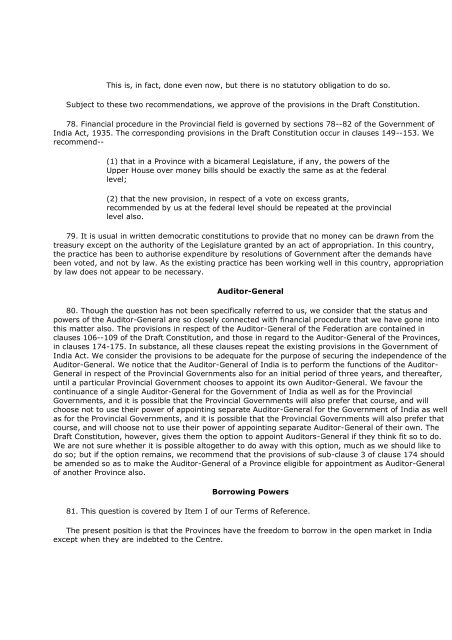
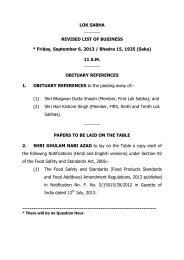
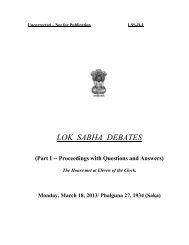
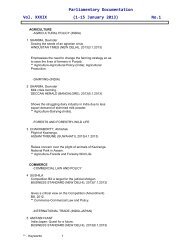
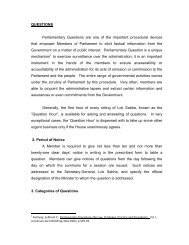
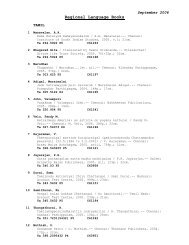
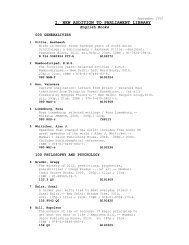
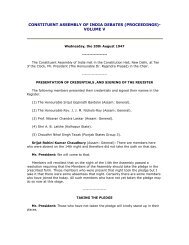
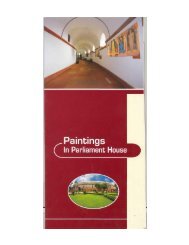
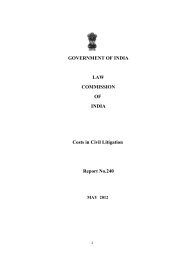
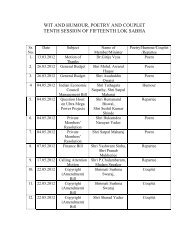
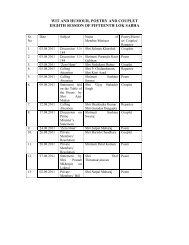

![gÉÉŌ A.]ÉŌ. xÉÉxÉÉ](https://img.yumpu.com/8015720/1/190x245/geeo-aeo-xeexee.jpg?quality=85)
